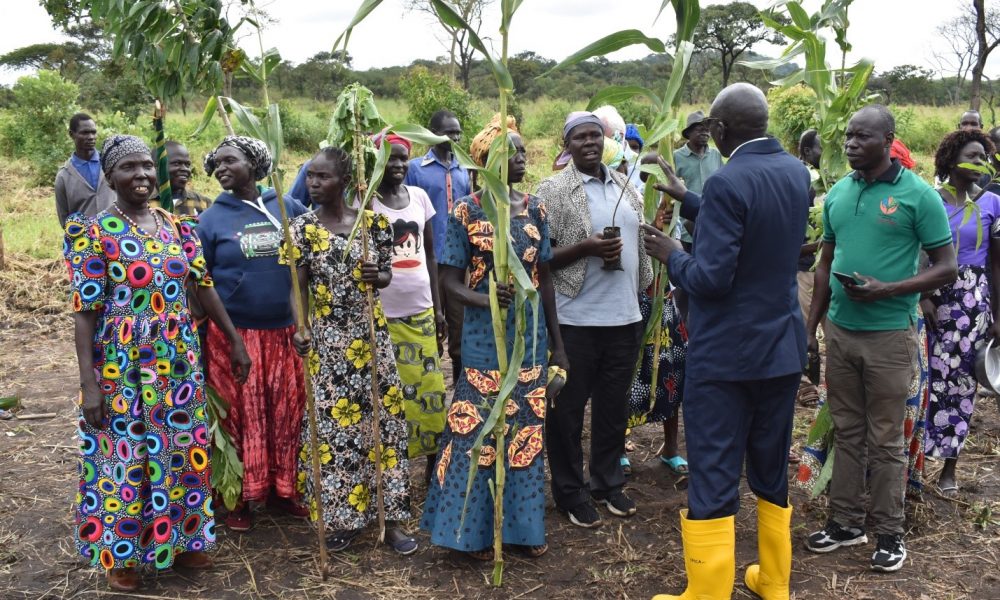By Bida Elly David
A good number of returnees in Magwi County through a support from the United Nations High Commissioner for Refugee (UNHCR) have embarked into multi agricultural project as a mechanism to fight food insecurity following their return from exile.
The returnees started their farming project through a local cooperative society known as the “CAN COYA multipurpose project dealing with cultivation of variety of produce for both commercial and subsistence use.
Over the past years, South Sudan has been affected by numerous tragedies such as intercommunal and political conflicts that resulted into displacement of many citizens to the camps loss of many lives among many others.
Magwi County of Eastern Equatoria State became one of the scopes with high rate of displaced citizens following deadly conflict between herders and the host community.
UNHCR and the government on Wednesday visited the returnees following the Country’s civil war that kept them in exile for number of years after displacement.
The major aim of the visit was to see how they were copping up with life in the area as well as to inspect a farming project rendered to them under the venture known as pocket of hope initiative.
The visitation and inspection exercise was joined by number of delegates driven from global partners such as the European Union, Swiss Cooperation, Norway and Turkish Embassies as well as government officials from the Eastern Equatoria State.
Pocket of hope program is an initiative meant to support developmental projects across some parts in South Sudan especially areas surrounded by returnees under the umbrella of the UNHCR.
Speaking to the media after the farm inspection, Raouf Mazou the assistant high commissioner for the UNHCR said that there are millions of South Sudanese in the region in need of high livelihood support services.
“There are more than two million South Sudanese refugees in the region and six hundred thousand have come back in the past two years. More would like to come back but it is clear that they need livelihood and access to services but livelihood is absolutely essential and crucial” he said.
“The type of livelihood that people can do for themselves is agriculture. I am very proud with the support that we have been able to provide with support of many of our donors with us today” he continued.
Mazou said that peace was very essential to ensure speedy agricultural production in the area since South Sudan contains variety of fertile and virgin land for farming.
He called on the government of South Sudan to work towards restoring peace as well as promote agricultural services to enable those in exile to return back home.
“We are supporting the government but at the end of the day, the responsibility is theirs” he said “We are talking about development here but not humanitarian assistance. It is for the government to primarily bring on board development actors such as other financial institutions to come and help and invest for the long term,’’ he added.
He said that UNHCR remained committed to supporting government with developmental initiatives for the sake of the affected population calling on the local communities of Magwi to work hard towards promoting agriculture.
He finally appreciated the commissioner of Magwi County for the tireless efforts invested towards ensuring that much population return back home and embarks in activities.
On her part, Ane Jeska, one of the members for the cooperative society said that produce from the yard has been helping them to feed their families as well as educate their kids since they returned from exile.
She lauded UNHCR for funding the agricultural products until it was able to aid them from the difficulties they faced.




